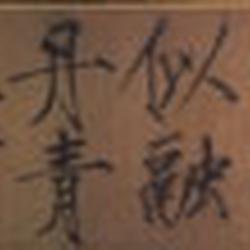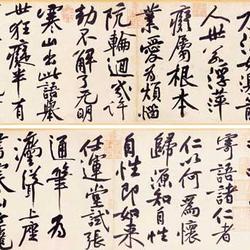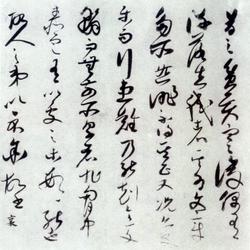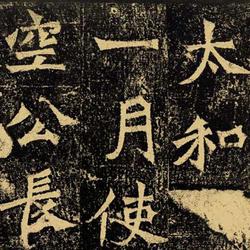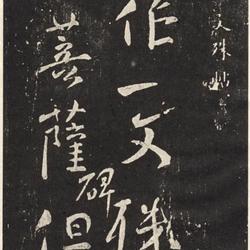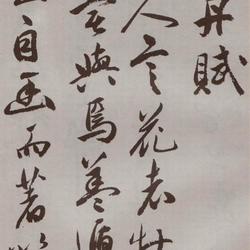The poem volume written by Ming Zan (the lazy monk in the Tang Dynasty) written by Huang Tingjian has been divided into two by later generations, and now only the inscription at the back, which is the current volume, remains. The full text is: "In July of the third year of Yuanfu, Fu Weng came up the Qingyi River from Rongzhou. He stayed at Niukou Village in Liao Zhiping for the 24th day. He raised his spirits and went to the Fangge Pavilion with wine. The lotus clothes were not exhausted. The lotus seeds could be used to climb. He threw a pot of chess. Burn the candle and return at night." There are also small words: "This word can be carved by Zhang Faheng." The beginning and end of the volume have the appraisal marks of Jia Sidao of the Southern Song Dynasty, Zhao Mengfu of the Yuan Dynasty, Xiang Yuanbian of the Ming Dynasty and others.
During the Shaosheng period of the Song Dynasty (AD 1094-1098), Huang Tingjian was appointed magistrate of Ezhou (now Wuhan City, Hubei Province). He was soon demoted to Fuzhou (now Fuling County, Sichuan Province) as a casual official, and then moved to Rongzhou (now Yibin, Sichuan Province). city). In the third year of Yuanfu (1100 AD), Zhezong died and Huizong succeeded to the throne. Huang Tingjian was appointed magistrate of Taiping Prefecture (now Dangtu City, Anhui Province). Before taking office, Huang Tingjian went to Qingshen (now Qingshen County, Sichuan Province) to visit his aunt. On July 21st, we took a boat up the river, stayed at the home of Liao Zhiping (Yangzheng) in Niukou Village on the 24th, and arrived at Qingshen on August 11th. While having a good night's drinking at Liao's house in Niukou Village, Huang Tingjian may have written the Ming Dynasty poems at this time, and recorded the journey from Rongzhou to Niukou Village.

